"Don’t wait for the conditions to be 'right.' Start before you’re entirely ready."
writer, poet, and professor Nancy Reddy on the habits and practices that make writing possible, talking out ideas when you’re stuck, and "starting before you’re entirely ready.”
This is a Beginner’s Mind interview, a series that explores the intersection of mindfulness and creative practice. Zen master Shunryū Suzuki Roshi said, “In the beginner’s mind, there are many possibilities; in the expert’s mind, there are few.” This series shines a light on the practices that sustain people in their daily lives and open the path to new possibilities. If you know (or are) a writer, creative person, teacher, or practitioner with practices you’d like to share, just reply to this newsletter to be in touch with me.
Subscribe below to make sure you don’t miss any future interviews.✨✨
If you read this newsletter, you already know I’m a huge fan of ’s writing and her newsletter, Write More, Be Less Careful. I was thrilled when Nancy agreed to do an interview for this series because I wanted a window into her process, which is grounded in a variety of analog habits and practices. I’ve been eagerly awaiting her first nonfiction book, which just came out last week—The Good Mother Myth—since she published this essay in Slate grappling with the myth of the “golden hour” after a baby is born.
Minna Dubbin says of The Good Mother Myth, "Reddy cracks open everything we take for granted about motherhood and shows us the facts are mere mythology and the 'science' is shoddy. This book is a gift to all mothers. With beautiful prose, Reddy wipes the slate clean and gives moms permission to forge their own parenting path."
Nancy is a wizard at “cracking open” myths and writing with clarity and lyricism about complicated topics like writing, gender, and motherhood. Her writing, in both prose and poetry, breaks down messy, intimidating processes into achievable steps, and makes you feel like maybe you, too, can make progress toward your goals. In fact, I owe the existence of this newsletter to Nancy’s advice to “start before you’re entirely ready.”
Read on for Nancy’s wisdom on the habits and practices that make writing possible, talking out ideas when you’re stuck, and "starting before you’re entirely ready.”💥
What are your writing practices? Do you have any rituals or habits that help you?
I started my writing life as a poet, though these days I’m working mostly in prose. I almost always start writing by hand–that pen/paper connection, and the speed of it—is really important to how my brain works.
Two little rituals that helped when I was drafting The Good Mother Myth:
Keeping a very informal kind of progress log in my notebook, with one question at the beginning of a writing session (what am I working on today?) and two at the end (what did I learn today? Where am I going tomorrow?). That habit of meta-writing really helped me get untangled when I was swamped by research or narrative, or thinking about how all the pieces fit together.
I’ve been in the habit for a while of picking a song I like and finding a one-hour loop of it on YouTube and using that as background music when I’m writing. Something about the repetition helps my brain drop into a groove for writing. I’d pick one song for each chapter, and usually by the time I was done drafting that chapter, I’d thoroughly worn the song out. This song—Mermaids by Florence and the Machine—was the soundtrack of the Winnicott chapter, which I think of as the darkest point of the book.
What are your mindfulness practices?
I don’t know that I have anything I’d call a mindfulness practice. What I have instead is a collection of habits and practices that make my writing possible: a lot of exercise, no-phone walks, pen and paper writing. Thinking about those practices together, they’re really about getting me a little out of my own brain and back into my body and into the material world.
Sherry Turkle talks about sacred spaces, and she uses that term to mean places we keep device-free so we can better connect with each other. For me, the idea of sacred space also means leaving my phone at home for key parts of the day–walking my kids to school, walking the dog, going to the gym–so I have space to think.
Do you have a mantra or motto related to your creative/mindfulness practices/life?
I have rotating notes that I post above my desk depending on what I need in that moment. Two I’m looking at right now:
“Fuck easy.” (from Jami Attenberg’s I Came All This Way to Meet You)
“There’s no right or wrong way to proceed. But do proceed.” (from Matt Bell’s Refuse to be Done)
What helps you when you get stuck with your creative/writing or mindfulness practices?
One thing I’ve really been working on in the past year or so is asking for help before I’m totally stuck and despairing about it. In early 2024, just after I’d turned in the full draft of The Good Mother Myth, I had a weekend getaway planned with my best friend, and I was telling her about a couple projects I’d been putting off when I was writing the book and that I was now feeling just horrible about. I spent probably five minutes telling her about my ideas for this book review I’d promised to write, and as I was talking, I could hear the parts that didn’t fit falling away.
That was a real lightbulb moment for me–I’d been, like, weeping into my notebook and my drafts folder for weeks about it, but when I talked to an actual human person, I was able to figure it out pretty quickly. It’s not always quite that easy, of course, and you do have to make sure you’re talking to someone who’s going to listen in the way you need at that moment. But asking for help in that way, whether it’s feedback on a draft or just talking through an idea in the early stages, really makes such a huge difference in my writing.
It’s easy to forget how much of writing is really about thinking, and, for me at least, talking is a huge part of my thinking. So in my own writing practice and in my teaching, I’m really working on prioritizing talking at lots of points across the process. Left to my own devices, I would kind of stew in my own misery. So I’ve had to learn to resist that.
How do you see your creative/mindfulness practices shaped by other practices or work in your life?
For me, it all comes back to materiality–the realization that I’m not just a brain floating through space but also a body moving through the material world.
So when I’m stuck in my writing, or just in a funk in my life, reconnecting to that material reality is especially important. That can mean a walk, doing some kind of small tidying around my house, baking something, a workout, writing in my notebook and/or printing out a draft and cutting it up and taping it to the wall . . . Anything that gets me out of my head and back into the world helps.
What advice would you give someone who is trying to start or restart a creative or mindfulness practice?
Don’t wait for the conditions to be “right.” Start before you’re entirely ready.
Two elaborations on that, from writers and thinkers who’ve been helpful to me:
I really like Oliver Burkeman’s newsletter, The Imperfectionist, and he had a great one recently: Act Fast. I love planning, and I always want to be deliberate and intentional about my writing practice and what I’m prioritizing–but that piece reminded me of the value of really running after a good idea. The whole piece is worth reading, but the gist of it is this:
So here’s my question: what’s something you could do, right away – not in the tense spirit of Facing Your Fears, but merely by stepping gracefully out of the way, with all your usual overcomplicating nonsense, and letting action happen? ‘Life completely unhindered by anything manifests as pure activity,” the Zen teacher Kosho Uchiyama observed. What action could you simply decide not to hinder today? I bet there’s something. Go on. Act fast.
In her contribution to the #1000WordsofSummer from 2020, Carmen Maria Machado wrote about teaching your brain to make more ideas–basically, collecting every good idea the moment it comes to you, even if you don’t know what to do with it:
“I am constantly nursing my obsessions: reading about what excites and interests me, rejecting ideas of high- and low-brow, letting myself indulge in narrative pleasures however and wherever they appear. I’m constantly stumbling across ideas: riding the trolley, walking through my city, reading books, driving, cleaning. And the minute they come to me—no matter what I’m doing—I write them down.”
It’s a good reminder for me that I don’t have to have an hour to follow that line into a beautiful, complete poem draft, and I don’t have to be able to see the full arc of the book for it to be worthwhile to jot down ideas for chapter titles. It’s also an argument for making sure you always have something to write with–I’ve taken to keeping little notebooks in every bag I own, from purses to my gym bag to the pool bag and in my car’s center console. You never know when your brain’s going to unstick itself, and you want to be ready when it does.
A Prompt from Nancy
If you’re stuck with a piece of writing or a project, make it visual somehow.
That might mean flipping to a new page in your notebook and writing a web or flowchart to help you think through the parts and how they relate to each other. It could mean printing out a draft of a poem or an essay, cutting it up, and using painter’s tape to post the parts on a big wall. I like Scapple, a mind-mapping software made by the same people who made Scrivener, for collecting key words and ideas digitally. Index cards and a big wall or a bed are also helpful for thinking about the connections between ideas, scenes, chapters, and so on.
There are two big ideas here: one is to switch medium a bit, to get your brain out of the purely words space that doesn’t always work and into a more visual and relational way of thinking about your project.
And the other is about moving from the micro of individual words and images and sentences to the macro of the project as a whole.
It’s also (I guess this is a third) about getting your body back into the writing project. If you’re typing on a computer or writing in a notebook, that work can quickly feel solely cerebral and fiddly. If you’re cutting things up and taping them to the wall and moving around, you’re in a body again.
Is there something you were hoping to share that isn’t here? Tell me about it.
I’ve long been a pretty obsessive reviser, and there are definitely poem drafts in my files that I just ground into dust through revision. The Good Mother Myth was my first experience of writing really on deadline–we sold it in April, and they wanted the finished book by January. I had to write faster than I’d expected, and I had to let go of some of the perfectionism about my early drafts.
When I sent my editor the first two chapters, they were really messy, and that was scary–I’d hoped to prove how “good” I was at writing, which I can now see is kind of hilarious, given that the book is all about the tyranny of goodness when it comes to motherhood. But writing fast and getting feedback on drafts I hadn’t polished every rough edge off was good for me as a writer, and I think it was ultimately good for the book, too. I was on a real time crunch with the Margaret Mead chapter, and I kept whispering “loose loose loose” to myself as I wrote.
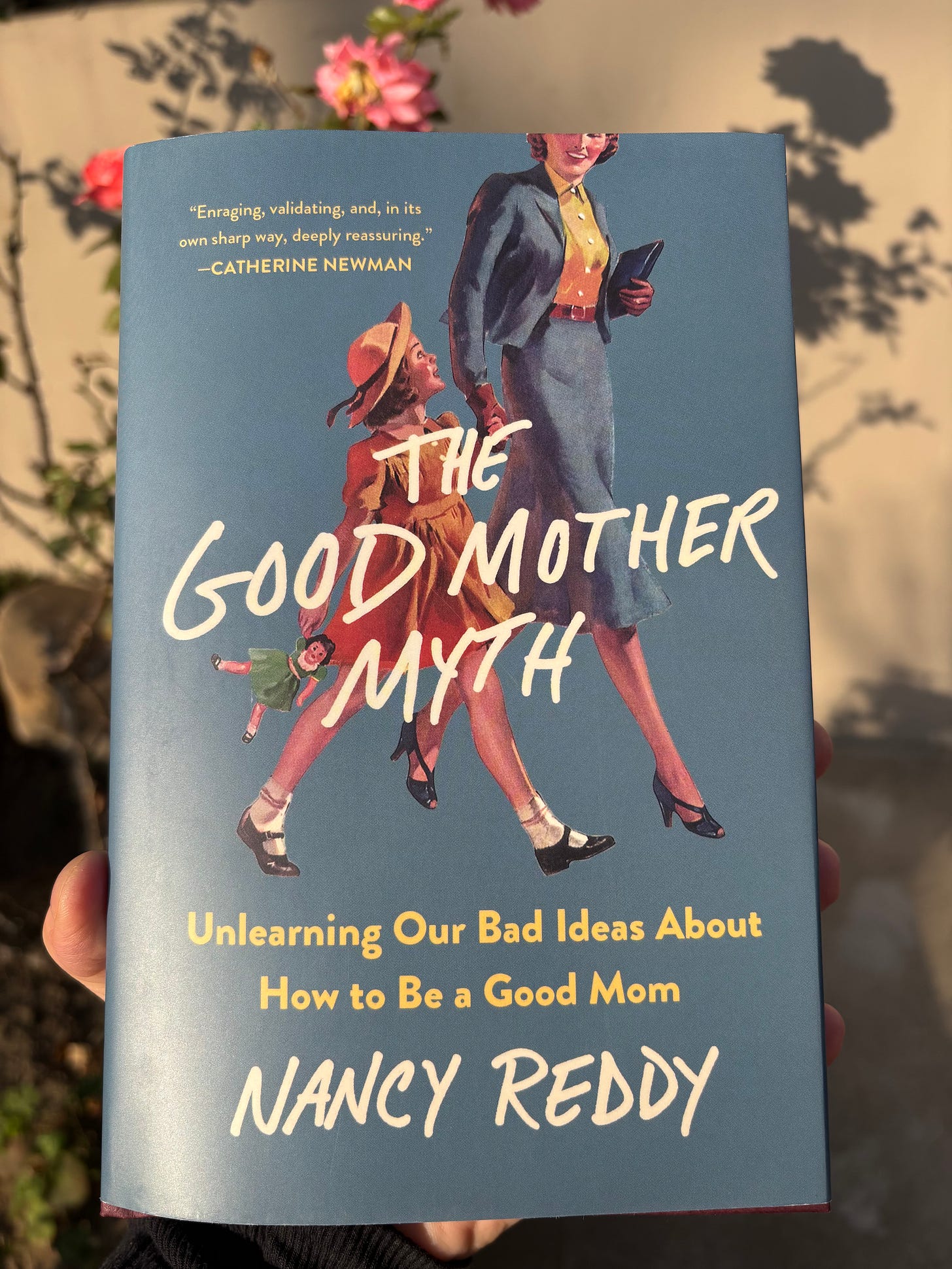
Nancy Reddy is the author of The Good Mother Myth, published by St. Martin’s Press in January 2025. Her most recent books include the poetry collections Pocket Universe and Double Jinx, a winner of the National Poetry Series. With Emily Pérez, she’s co-editor of The Long Devotion: Poets Writing Motherhood. She writes the newsletter Write More, Be Less Careful. You can find her on Instagram at nancy.o.reddy.
For more from Nancy
PGH readers: Nancy has an event Saturday, February 8 at White Whale Bookstore AND on livestream(!) at 7pm to celebrate The Good Mother Myth. She’ll be in conversation with novelist Clare Beams (whose book, THE GARDEN, is incredible), and Emily Kane and Jul Bibro-Ruch, two maternal mental health professionals. Also, her mom’s bringing a cake 🎂! Details HERE.
Nancy’s brilliant essay on making and preserving space for “Thinking Work” in writing for Be Where You Are (in case you missed it)
Nancy is LITERALLY EVERYWHERE ONLINE RIGHT NOW: here are a few places where you can listen to her talk about her book and her process: The Mother of It All with Sarah Wheeler and Miranda Rake; Totally Booked with Zibby with Zibby Owens; Here’s a listing of her Book Tour dates/cities.
LA readers: Nancy has an event here on March 25th at 6pm at Zibby’s Bookshop in Santa Monica with Hannah Michell, author of Excavations, Dr. Sarah Oreck, a reproductive psychiatrist and a founder of Mavida Health, and Ruth Whippman, author of BOYMOM, for a reading and conversation about motherhood across genres and disciplines.
& I’ll leave you with a poem I love from Nancy’s recent poetry collection, Pocket Universe (LSU Press, 2022):
This post is a little longer than most emails allow, so click on this link to read it all on Substack!
Clicking the heart to like this post, adding a comment, or sending it to a friend is a great, free way to help Nancy’s work and wisdom find readers. 🩵
Be Where You Are is a newsletter about how to use writing and mindfulness to live more fully where you are. If you value this work, please text it to a friend, or consider a paid subscription (a few dollars a month) to help me keep it going.💥 You can also find me on Instagram or Facebook or find more info at my website. Thank you for reading! 🩵


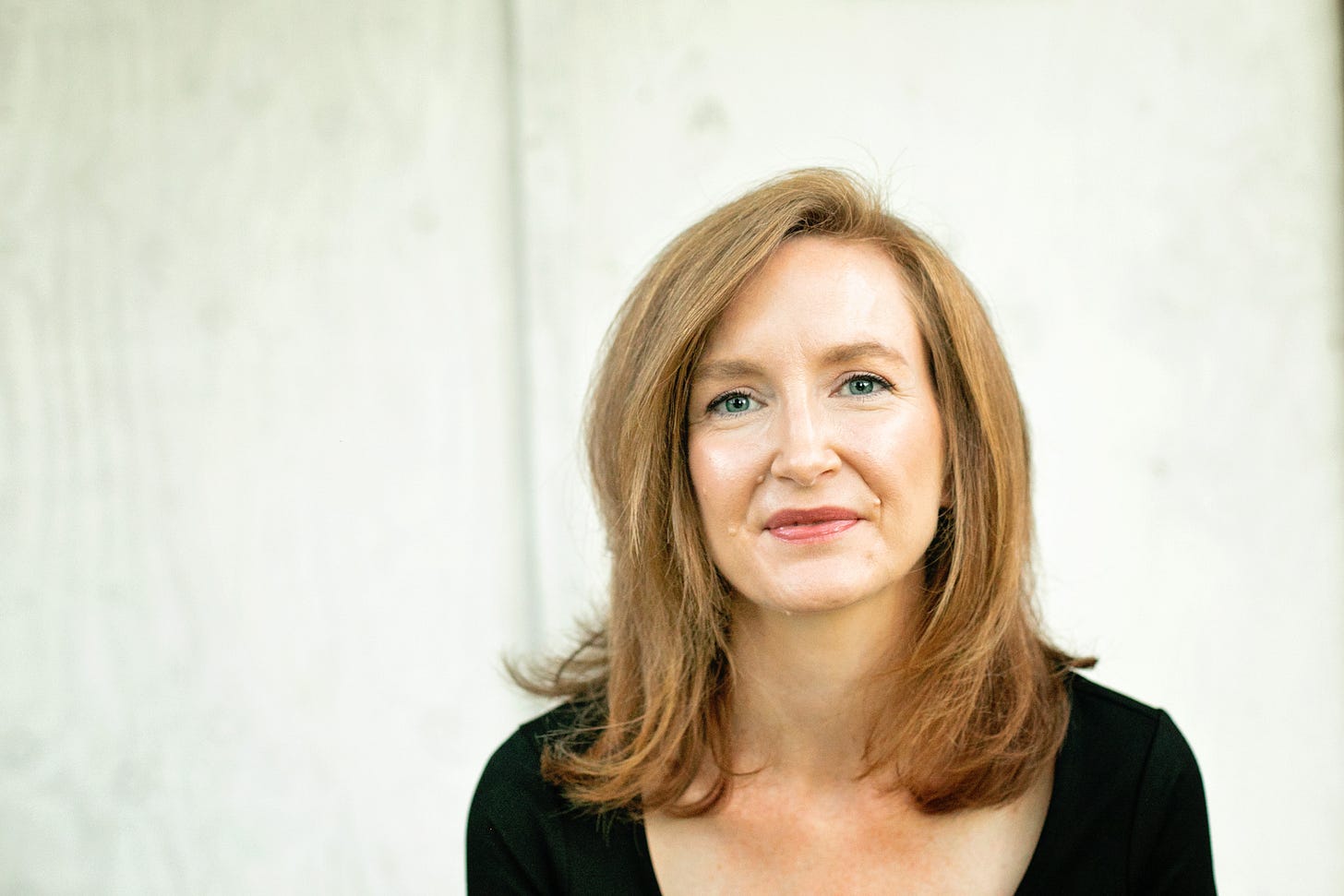
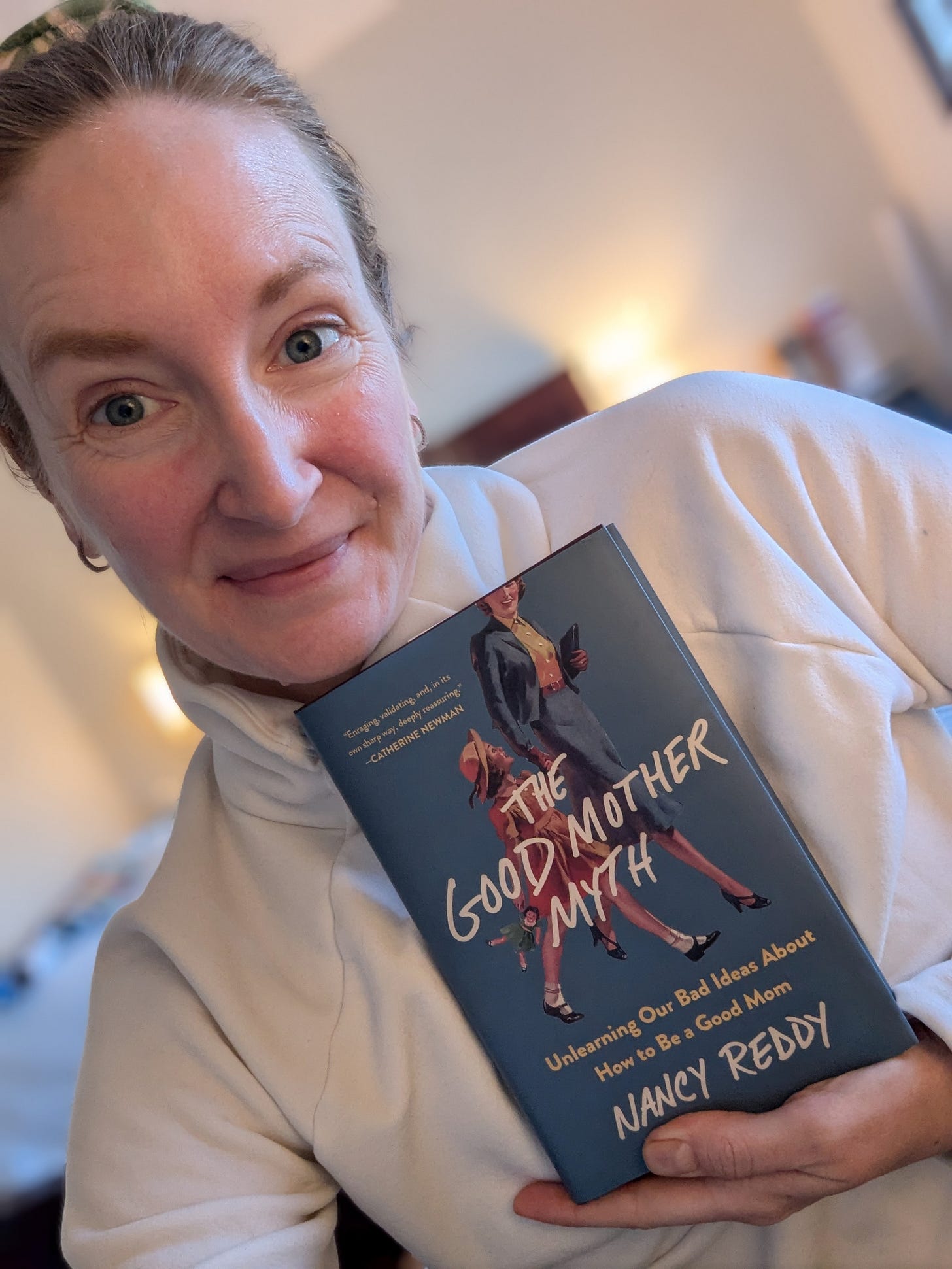
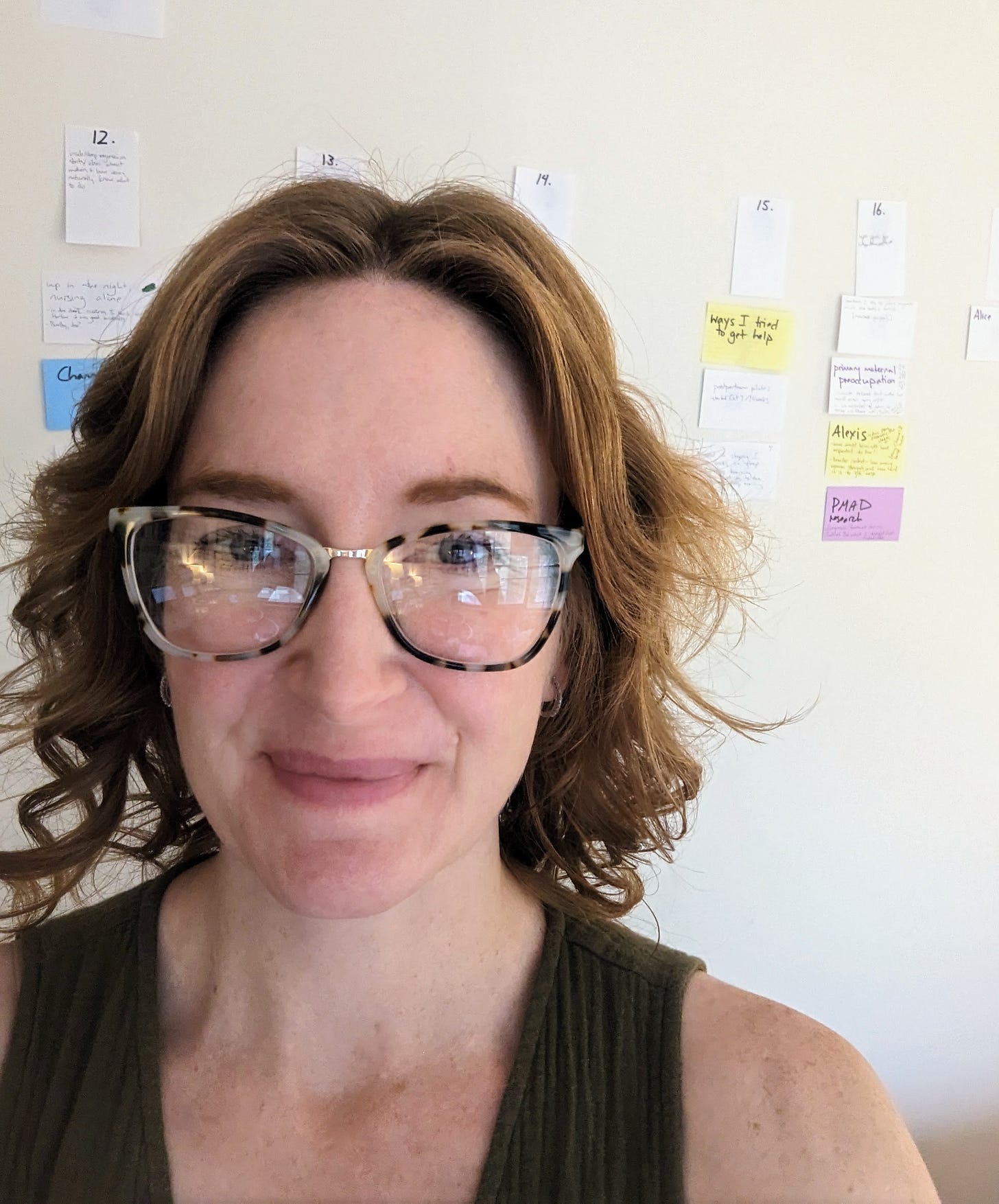

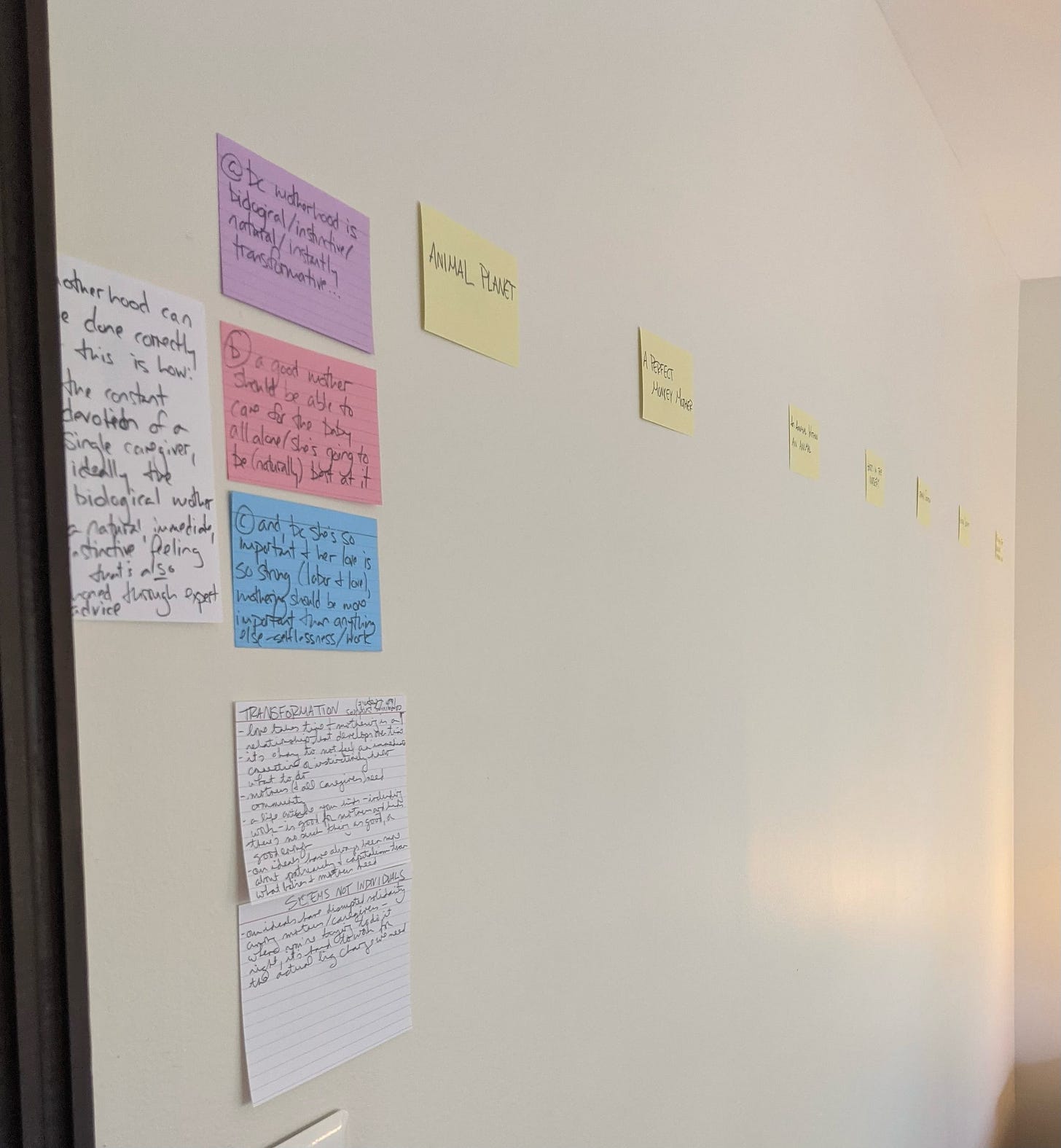

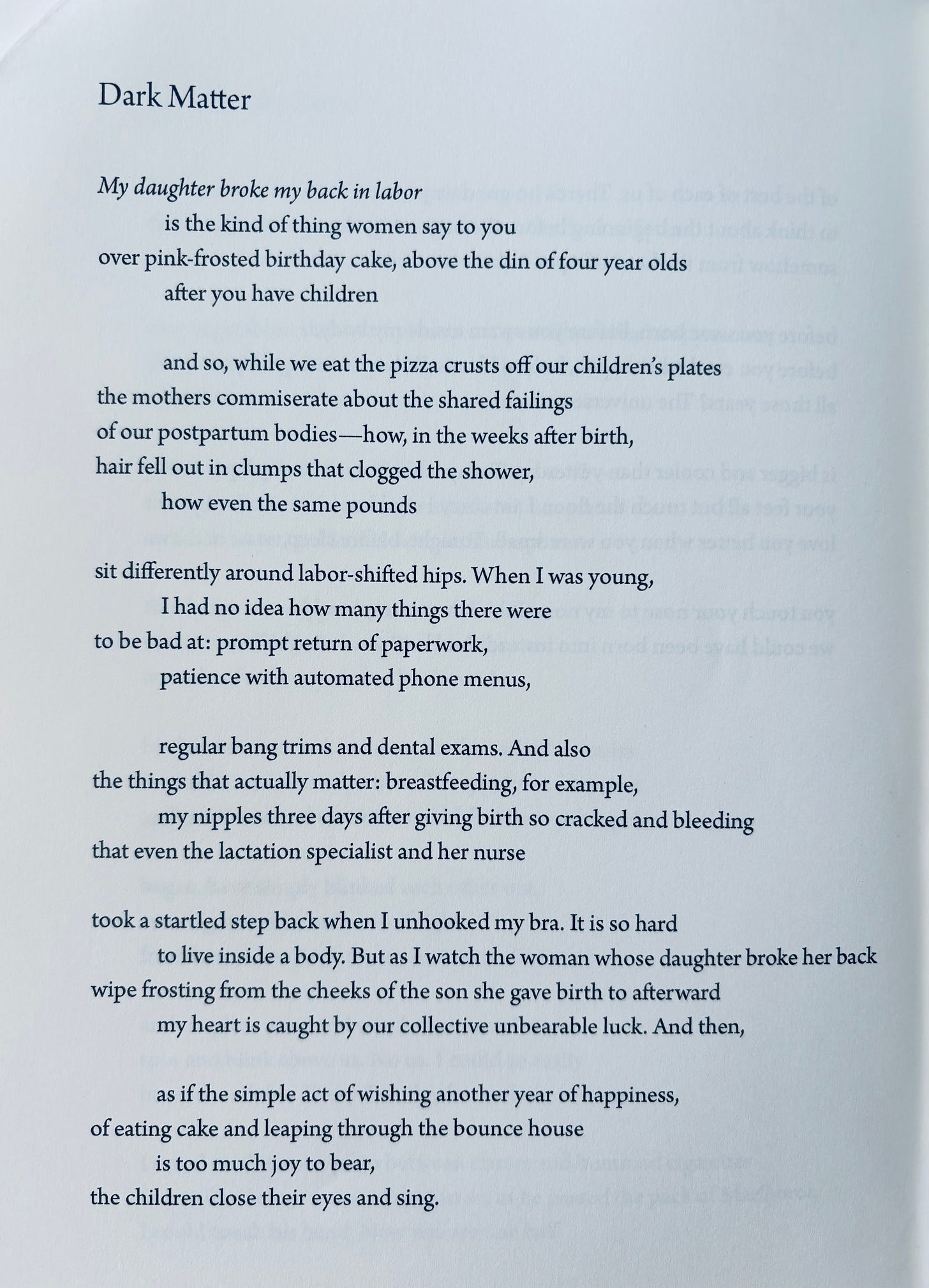
Love this interview - so many clear, accessible, and inspiring ideas - I especially like how she advises to use different mediums and to get into your body when you’re feeling stuck - reading that was a lightbulb moment for me - will definitely do more of those things! Thank you for writing this newsletter😊